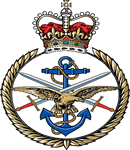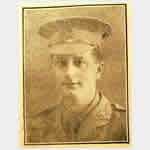Commemorated: | |||
| 1. Memorial: | Helles Memorial | ||
| 2. Book: | The (1921) Masonic Roll of Honour 1914-1918 | Pg.136 | |
| 3. Memorial: | The (1940) Scroll - WW1 Roll of Honour | 9D GQS | |
Awards & Titles: | |||
Family :
Son of Edward and Ann Stringer, of 6, Trafalgar Square, Ashton-under-Lyne. .Education & Career :
B.Sc., Victoria University, Manchester. Deputy Headmaster, Municipal Secondary School, Ashton-under-Lyne.
Service Life:
Campaigns:
- The First World War 1914-1918, World-wide.
| Unit / Ship / Est.: 1/9 Manchester Regiment |
1/9th Battalion August 1914 : in Ashton-under-Lyne. Part of East Lancashire Brigade, East Lancashire Division. Moved to near Bury. 25 September 1914 : landed at Alexandria in Egypt. 10 May 1915 : landed on Gallipoli. 26 May 1915 : formation became 126th Brigade, 42nd (East Lancashire) Division. Late December 1915 : evacuated from Gallipoli, landed on Mudros and proceeded to Egypt. 2March 1917 : landed Marseilles and proceeded to the Western Front. 19 February 1918 : transferred to 198th Brigade in 66th (2nd East Lancashire) Division, absorbing 2/9th Bn and renamed as 9th Battalion. April 1918 : reduced to cadre. 22 July 1918 : transferred to 199th Brigade in same Division. Absorbed 13th Bn, newly arrived from Salonika, on 13 August 1918. |
| Action : Gallipoli |
The Gallipoli Campaign was fought on the Gallipoli peninsula 25th April 1915 to 9th January 1916. in a failed attempt to defeat Turkey by seizing the Dardanelles and capturing Istanbul. Ill-conceived and planned, the initial effort by the Royal Navy failed to force passage through the Dardanelles by sea power alone. It was then realised that a land force was needed to support the project by suppressing the Turkish mobile artillery batteries. By the time all was ready the Turks were well aware and well prepared. Despite amazing heroics on the day of the landings only minor beachheads were achieved and over the succeeding 8 months little progress was made. Eventually the beachheads were evacuated in a series of successful ruses.
Despite Gallipoli rightly becoming a national source of pride to Australians and New Zealanders, far more British casualties were sustained, and these days the substantial French contribution is almost forgotten.
Detail :
Published in the Reporter 6th November 1915. LIEUT. BROADBENT. Lieut. J. BROADBENT, of the Ashton Territorials, has arrived home invalided from the Gallipoli Peninsula, where he had been since the battalion landed in May. He was reluctant to leave the Ashton Territorials, but the doctor ordered him home, in order that the jaundice which had attacked him should not have any more serious consequences. Lieut. BROADBENT is better known to Ashton as Major BROADBENT, councillor for St. Michael's Ward in the Conservative interest. In September last Major BROADBENT rejoined the 9th Battalion Manchester Regiment, (from which he retired about four years ago with the rank of hon. major) and took over the duties of transport officer, for which he was admirably fitted, and he has rendered yeoman service to the battalion both in Egypt and at the Dardanelles. Lieut. BROADBENT has 21 years service to his credit with the old Volunteers and the Ashton Territorials, and it is well known that he revelled in the military life. He could not resist the opportunity of seeing active service with the men he had helped to train in times of peace, and the boys were proud to have 'the gallant little major' back with them. Lieut. BROADBENT came home on the Aquitania, and arrived at Mayfield Station, Manchester, about 1.30 last Thursday morning. He was taken to the Whitworth Street Military Hospital, and on Friday the medical board granted him a month's sick leave. Before motoring to his home, Bella Vista, Castleton, where he went to reside a few years ago, Lieut. BROADBENT paid a hurried visit to Ashton, and was heartily welcomed by those of his old aquaintances who were fortunate enough to see him. Had he been well enough on the Saturday he would have been present at the ceremony at the Ashton Town Hall, when his brother officer, Lieut. W.T. FORSHAW, V.C. was honoured with the Freedom of the Borough. Lieut. BROADBENT had a warm reception from his many friends at Castleton. He had taken a fairly prominent part in the local life of the district, and was a member of the Chapel-en-le-Frith District Council, and deputy chairman of the Highways Committee. Lieut. BROADBENT gave a Reporter representative an account of the splendid way the Ashton Territorials had played their part on the Gallipoli Peninsula. One thing which has struck me more than anything else he said, is the cheerfulness of the men, and the fine way they have tackled everything they have been told to do. They are always laughing and joking. A funny man in a battalion is worth a great deal, and we had some rare humourist. They have been in some tight corners, but their spirits have never flagged. The old Ninth have done some fine work, and they have got a grand reputation amongst the soldiers out there. The Turks are very clean fighters, said Lieut. BROADBENT. On many occasion wounded British soldiers have been found, their injuries carefully bandaged with Turkish bandages, and the Turks have left water for them to drink. I was speaking to poor FRANK HAMER just before he was killed. If ever there was a brave and true man on this earth it was FRANK HAMER. It was a knockdown blow when I heard that both he and ALBERT EDWARD STRINGER had been killed. STRINGER was wonderfully popular, and a jolly good chap. He was what you might term my 'stable companion,' for we shared the same quarters. Lieut. BROADBENT paid a glowing tribute to the work of Major CONNERY, who had infused much spirit into the men. Major CONNERY'S motto was Men of the firing line first. Published in the Reporter 26th June 1915. LIEUTENANT STRINGER LEADS BRILLIANT CHARGE. News was received on Wednesday by Captain RALPH LEES from Captain G. OKELL, that Lieut. A.E. STRINGER was killed in action in the Dardanelles, after a brilliant bayonet charge, and the capture of a Turkish trench directly in front of the Allies firing line. The news was received with profound regret by everyone in Ashton who knew NED STRINGER, and it is not beyond the truth to say that even men had great difficulty in controlling their emotions. No one who ever came into contact with NED STRINGER could fail to appreciate his cheery and sympathetic manner. His personal charm was magnetic, and encouraged confidence. After he went to college, whenever he came back to Trafalgar Square School, the scholars had to beg him to teach them, and any teacher knows what a high tribute that meant to a teachers personality. He was full of enthusiasm for his new calling after he had joined the Ashton Territorials, and whilst at Bury, prior to the battalions departure for Egypt, he was beside himself with joy at setting out on a great adventure. In his letter CaptainOKELL describes the delight with which the officer and men of the Ashton Territorials took part in a hazardous undertaking. He says - It is my painful duty to inform you that NED (Lieutenant STRINGER) was killed in action on the evening of the 7th inst. On that day our Company was ordered to charge the enemy and clear them out of the trenches in front of the firing line. On the left were other troops not belonging to our battalion, who had a similar task to perform. Captain F. HAMER and Lieutenant WADE were to charge one trench, and NED and I the other trench. I was posted a little to the left to give the signal for the advance. I gave it shortly after 7.30, and with a mighty cheer our boys advanced. Immediately the enemy opened a terrific rifle and maxim fire, but NED and I succeeded in reaching the trench. Unfortunately the enemy were able to open an enfilading fire, which made the trench absolutely untenable. We had to retire, but only about four of us succeeded in doing so safely. HAMER and WADE were subjected to cross fire. Captain HAMER fell before he reached the trench. WADE succeeded in capturing the trench, and held it until about 2 o'clock in the morning. I was of the opinion that the trench would be enfiladed as soon as dawn came, and ordered the troops to evacuate the trench. All the battalion was shocked at the terrible news of NED. NED had made himself a favourite with the men, and also with his brother officers. We all send you our deepest sympathy. Lieutenant A.E STRINGER was the eldest son of the late Edward Stringer J.P. headmaster of the Trafalgar Square Day School. He was 37 years of age, and joined the Ashton Battalion of the Territorials at the outbreak of the war. (Second Lieutenant A.E. STRINGER is recorded on the Helles Memorial to the missing).
Masonic :
| Type | Lodge Name and No. | Province/District : |
|---|---|---|
| Mother : | Lodge of Fidelity No. 430 E.C. | East Lancashire |
Initiated | Passed | Raised |
2nd February 1906 | 3rd March 1906 | 19th April 1906 |
Senior Deacon
Source :
The project globally acknowledges the following as sources of information for research across the whole database:
- The Commonwealth War Graves Commission
- The (UK) National Archives
- Ancestry.co.uk - Genealogy, Family Trees & Family History online
- ugle.org.uk - The records of the United Grand Lodge of England including the Library and Museum of Freemasonry
Additional Source:
- Founder Researchers : Paul Masters & Mike McCarthy
- Researcher : Bruce Littley

